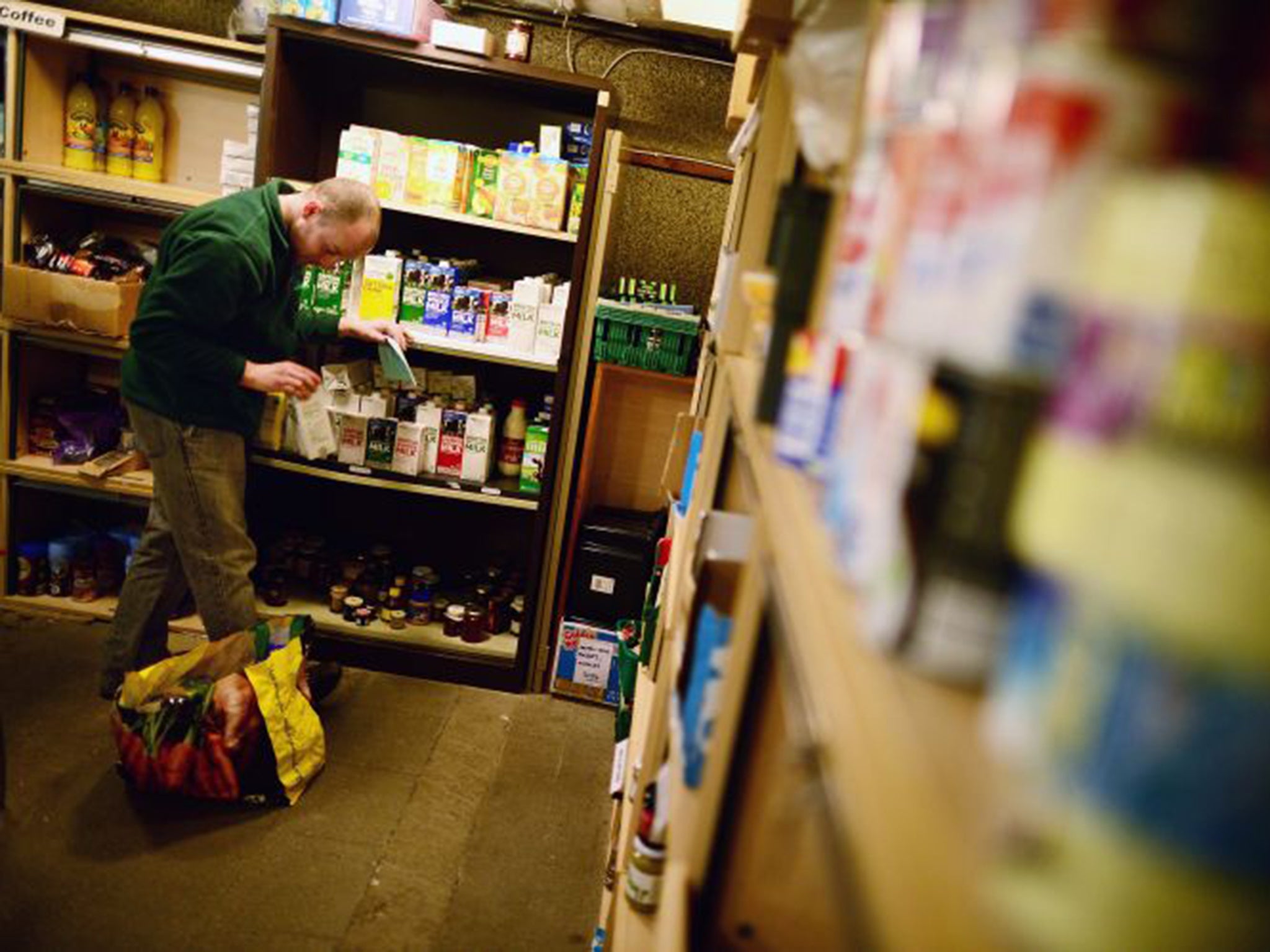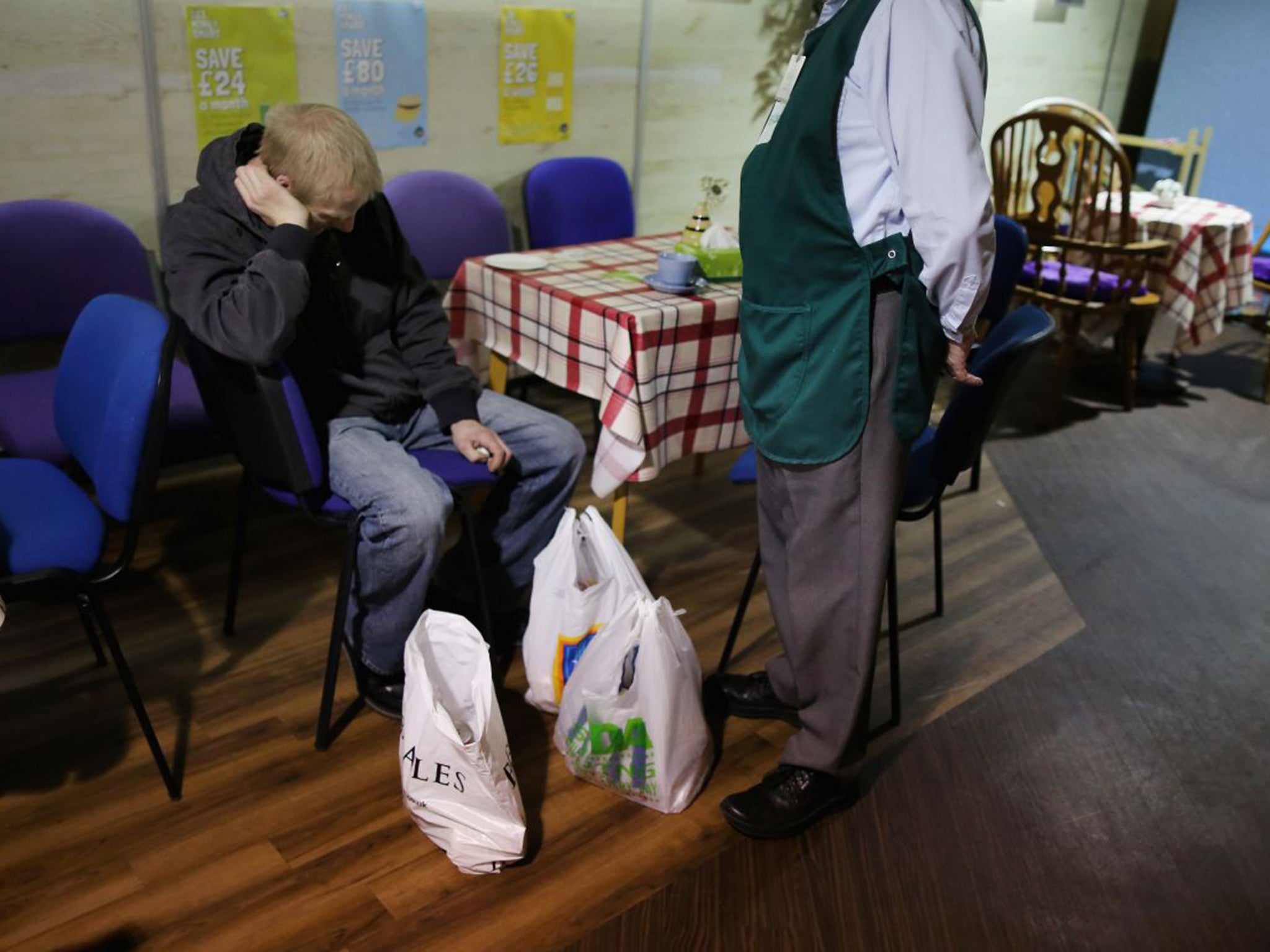Food banks are 'storing-up a health nightmare for the future' due to food's lack of nutritional standards, Government warned
Exclusive: Many are struggling to store and distribute fresh produce, forcing suppliers to only hand out dried, tinned or powdered produce

Your support helps us to tell the story
From reproductive rights to climate change to Big Tech, The Independent is on the ground when the story is developing. Whether it's investigating the financials of Elon Musk's pro-Trump PAC or producing our latest documentary, 'The A Word', which shines a light on the American women fighting for reproductive rights, we know how important it is to parse out the facts from the messaging.
At such a critical moment in US history, we need reporters on the ground. Your donation allows us to keep sending journalists to speak to both sides of the story.
The Independent is trusted by Americans across the entire political spectrum. And unlike many other quality news outlets, we choose not to lock Americans out of our reporting and analysis with paywalls. We believe quality journalism should be available to everyone, paid for by those who can afford it.
Your support makes all the difference.The growing reliance on food banks in the UK is “storing-up a health nightmare for the future,” the Government has been warned, as new research into rising levels of food poverty in Britain revealed the lack of nutritional standards being met by suppliers.
A study of 70 independent food banks handed to The Independent found many struggling to store and distribute fresh produce, forcing suppliers to only hand out dried, tinned or powdered produce.
The research also reveals the extent to which Iain Duncan Smith’s strict clamp down on benefits has driven people to food banks, with two thirds of people relying on them saying benefit sanctions and late benefit payments were the reason why they were forced to rely on charity for food.
A further 12 per cent attributed the Coalition Government’s cuts to welfare for using food banks, according to the research carried out in May and June this year.
Nine out of ten of the independent food banks surveyed said that less than a quarter of the food they provided was fresh, while a third of them fail to hand out any fresh food at all. This means the majority of produce given out to those reliant on food banks is tinned vegetables, tinned meat, rice and pasta, powdered soup and dried fruit.
Food bank managers have warned that people must not be reliant on food banks for more than a short period of time to ensure their diets are not significantly harmed.
Deborah Chapman, who runs Llanelli Lifeshare Food Bank in Wales, said: “I believe that we are storing up a health nightmare for the future because of the reliance of food banks. I would be concerned about people’s health if they are only eating from food banks for long periods of time, as most of it is tinned or dried. Our aim is to provide the staples so people can afford to buy fresh food.”

The study, carried out by Thinkmoney, a budgeting account provider, found that nearly half of all the food banks it surveyed would fail to meet even basic nutritional standards. Many independent food banks are housed in churches and community centres, which lack facilities to store and distribute food safely.
John Glen, a Conservative MP who is a member of the cross party Hunger and Food Poverty parliamentary group and has worked closely with the Trussell Trust, a charity that runs more than 400 food banks across the country, said food waste must be used more creatively. He called on supermarkets to play a greater role in helping local food banks provide the fresh food that is lacking at independent food banks.
“The sector has been talking about it for a while and there are groups that are trying to work with supermarkets to do their fair share to overcome these logistical problems and procure contributions in a form that can be readily turned around and packaged into consumable sized packages for use,” he told The Independent.
“Progress needs to be made – it’s horrendous to know millions of tons of fresh food is wasted and not being deployed for the good of people who have emergencies and need it.”
The Department for Work and Pensions insisted there was no strong evidence suggesting the use of food banks was directly linked to its welfare reforms.
“We provide more than £80bn a year in support to people of working age, ensuring a strong safety net is in place and extra help is also available to people who are in hardship or need an advanced benefit payment,” a spokesperson said.
“The vast majority of benefits are processed on time with improvements being made year-on-year, and the number of sanctions has actually fallen.”
Join our commenting forum
Join thought-provoking conversations, follow other Independent readers and see their replies
Comments